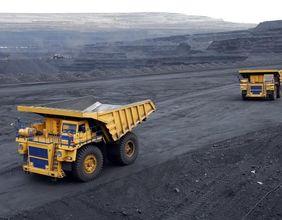Highlights
- Brent crude hits a four-year low, dropping nearly 4%.
- Saudi Aramco (TADAWUL:2222) slashes prices for Asian markets.
- OPEC+ surprises with a significant production increase.
This week opened with a notable downturn in oil prices, driven by multiple global factors that have investors on edge. The price of Brent crude, a global benchmark, fell sharply by nearly 4%, reaching $63.21 a barrel, marking a four-year nadir. This decline follows an 11% drop from the previous week, underscoring a volatile period for the commodity. Similarly, West Texas Intermediate (WTI) was not spared, dipping to $59.79 a barrel.
The drop in prices can be largely attributed to two major developments. Firstly, Saudi Aramco (TADAWUL:2222), a leading state oil producer, announced a significant price cut for its Arab Light crude, reducing it by $2.30 a barrel for its primary buyers in Asia. This decision came shortly after the OPEC+ alliance, which includes both OPEC and non-OPEC oil-producing nations, revealed an unexpectedly large increase in oil output.
Adding to the complexity, the escalation of the trade war has intensified fears regarding a potential global recession and a subsequent dip in oil demand. These concerns were amplified following retaliatory trade measures from China, the world's largest crude oil importer, which announced new tariffs in response to those imposed by the US.
In the United States, officials from the administration of President Donald Trump have downplayed the risk of inflation and recession, despite the economic uncertainties stoked by the recent imposition of sweeping tariffs. Their remarks over the weekend did little to assuage market concerns.
The broader commodities market, including industrial and agricultural sectors, has also felt the impact of these geopolitical and economic shifts. The imposition of tariffs has notably dampened the appetite for risk among investors, leading to sharp declines across various asset classes.
As the week progresses, market watchers will be closely monitoring the responses from major economies and their potential impacts on global commodity prices. The recent moves by Saudi Aramco (TADAWUL:2222) and the surprising decisions by OPEC+ are set to play a critical role in shaping market dynamics in the near term.

_04_07_2025_01_17_29_719108.jpg)




